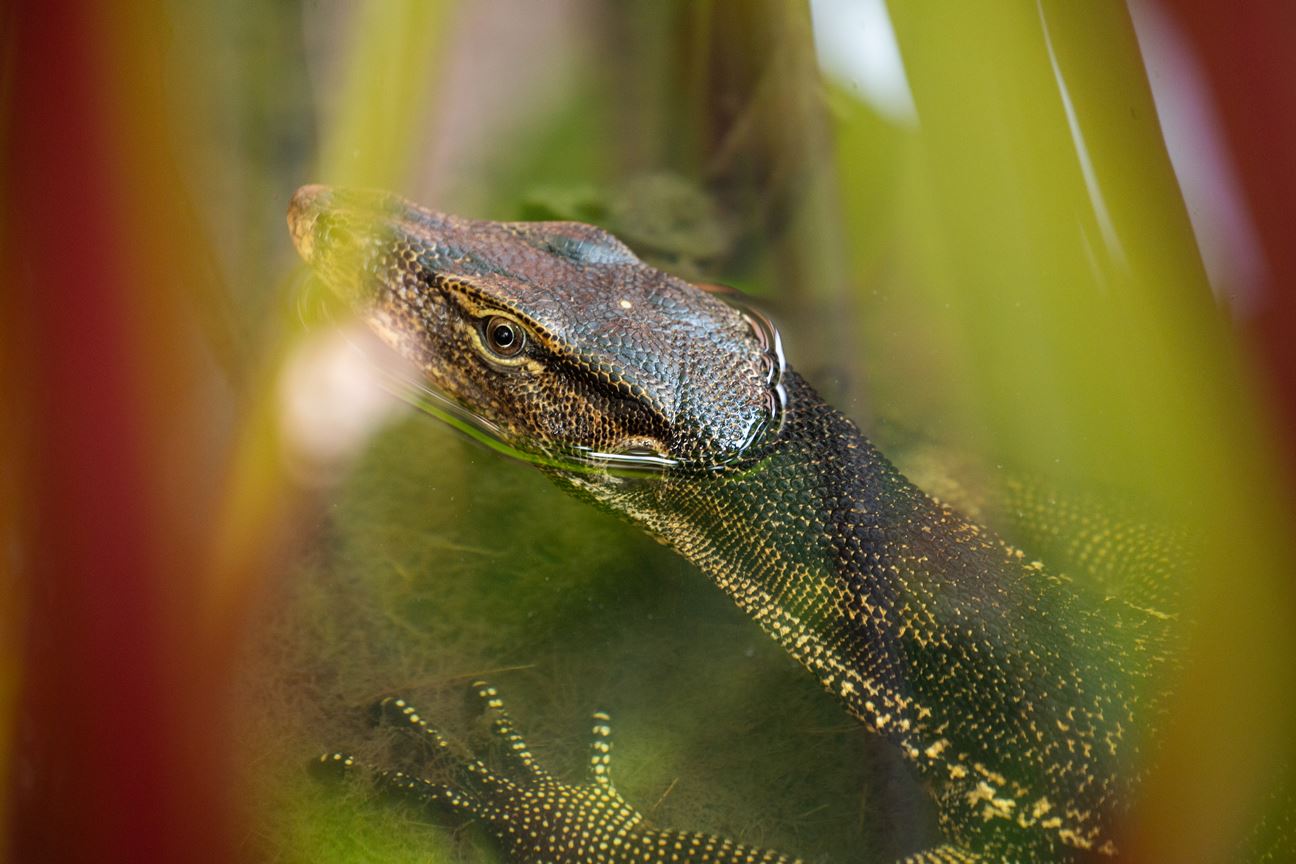Killed and traded for the most absurd of superstitions, here’s how monitor lizards are suffering at the hands of an illegal wildlife trade!
This series looks at some commonly (and illegally) traded species in India.
A strange trade was uncovered in December 2017 – that of Hatha Jodi, or the monitor lizard penis.
Monitor Lizards in India:
India has four species of monitor lizards belonging to the Varanus genus, namely:
- Bengal monitor (Varanus bengalensis)
- Yellow monitor (Varanus flavescens)
- Desert monitor (Varanus griseus)
- Asian water monitor (Varanus salvator)
They are distributed over much of the country and inhabit a wide variety of natural habitats.
Legal Protection:
All Varanus spp. are protected under Schedule I of the Wildlife Protection Act, 1972. This is the same level of protection given to tigers and elephants! Three of the four Varanus spp. found in India are also listed under CITES Appendix I except for V. salvator, which is listed under Appendix II.

(Image Courtesy- adam Photographer-Shutterstock)
Why They Are Traded:
Monitor lizards are traded for their penises, which, when dried, resemble a pair of clasped hands (hatha jodi). They are commonly sold as the dried root of a holy plant found in sacred places. Tantriks sell them to superstitious people all over the country and abroad along with various rituals that need to be conducted in the days leading up to Deepavali. Mantras are spoken 1100 times before the hatha jodi is burned, so that wishes come true and good fortune blesses the house.
Traditionally, however, tribal people would capture monitor lizards for their meat.
The Trade:
As is the case with a lot of wildlife trade, the trade in monitor lizards paints a gruesome picture. It can be hard to tell the difference between male monitor lizards and females, resulting in the capture and killing of both males and females. When they are sexed (i.e. the males identified), they are held over a fire near the groin and when the penis (which is usually stored in a sac in the body) protrudes, it is chopped off. The animal is often still alive at this point.
Hatha jodi was found to be sold not just by astrologers and in tantrik shops, but on major online retailers to Indians domestically and abroad. A sting operation by the Wildlife Crime Control Bureau and the Wildlife Trust of India led to the capture of several individuals involved in the trade, and with the cooperation of major online retailers, had the online trade shut down.
A video from the Wildlife Trust of India describes their operation in detail. Be warned, though: it’s not for the fainthearted.